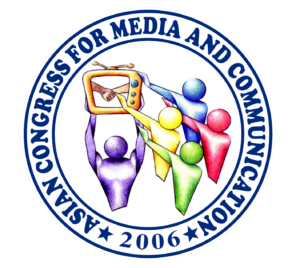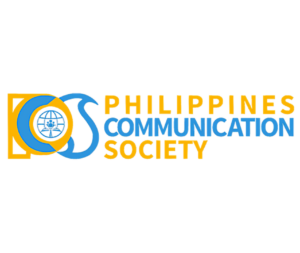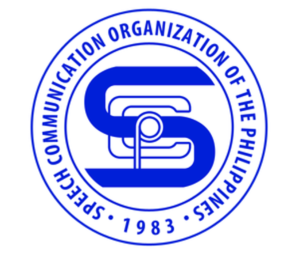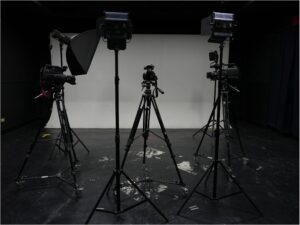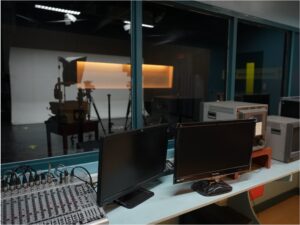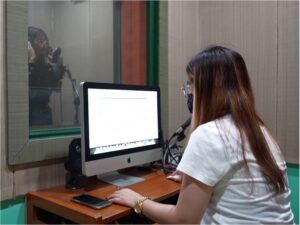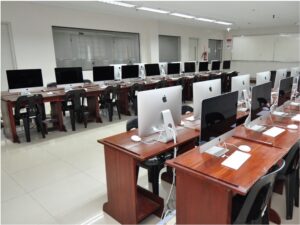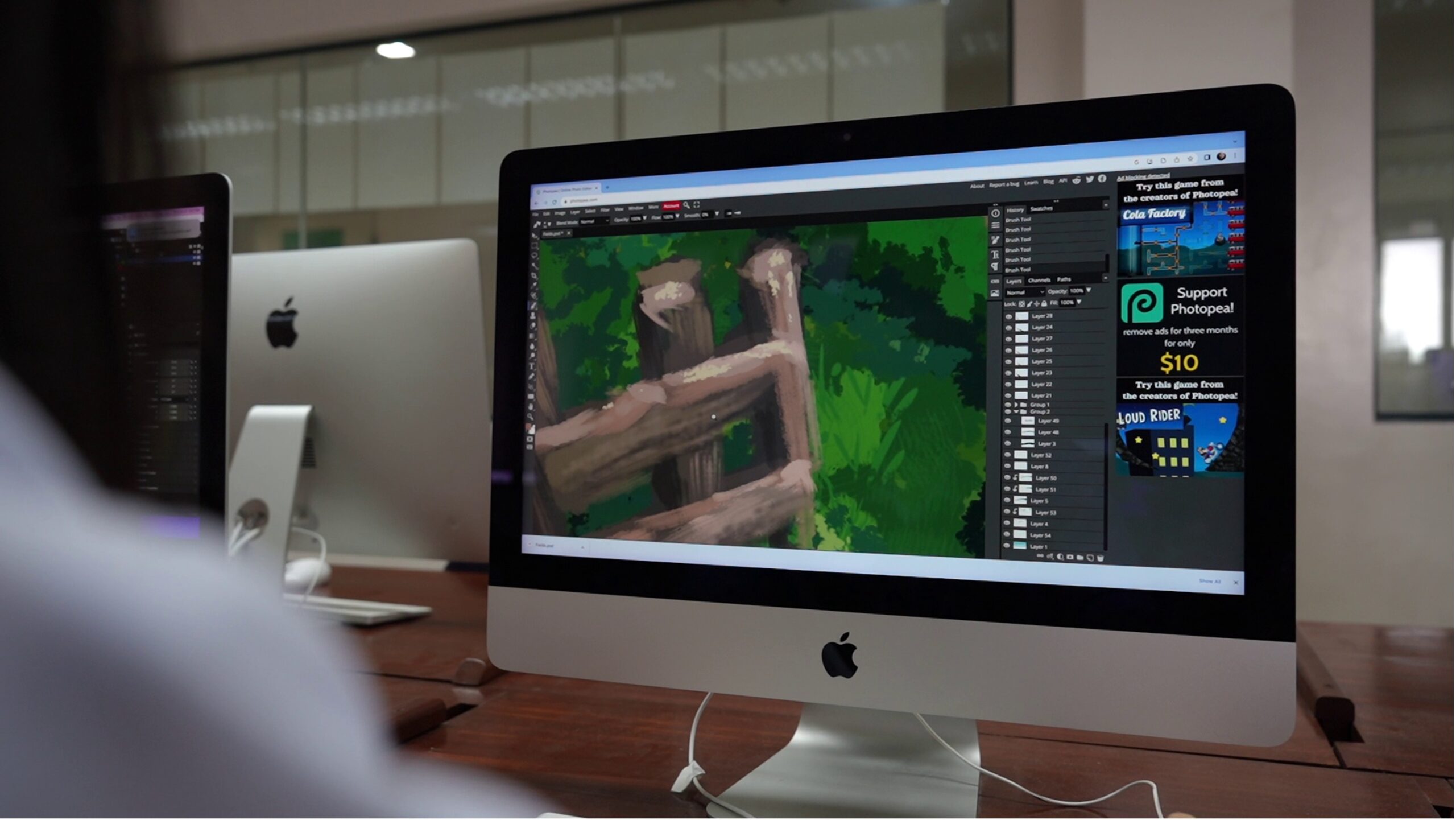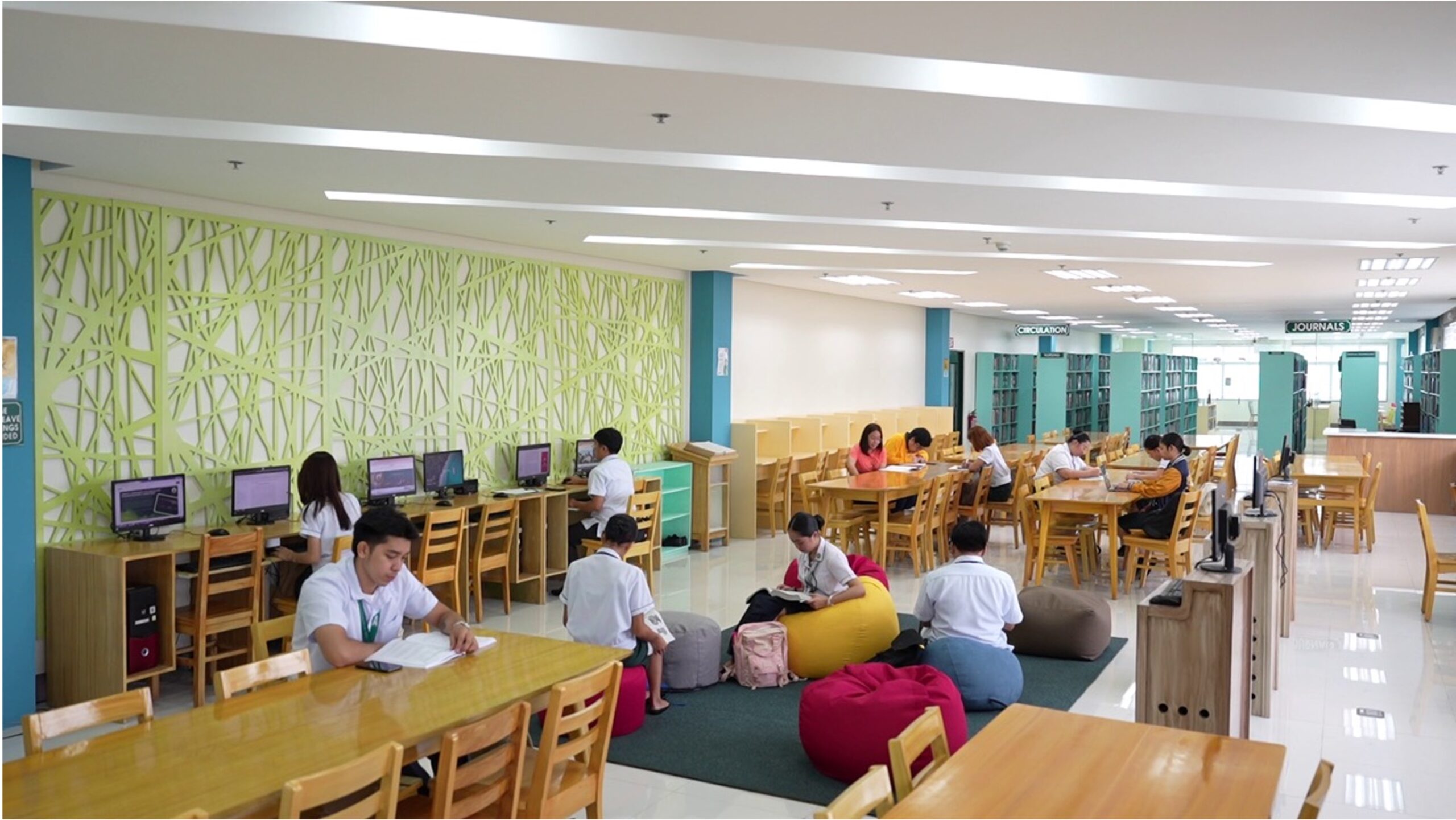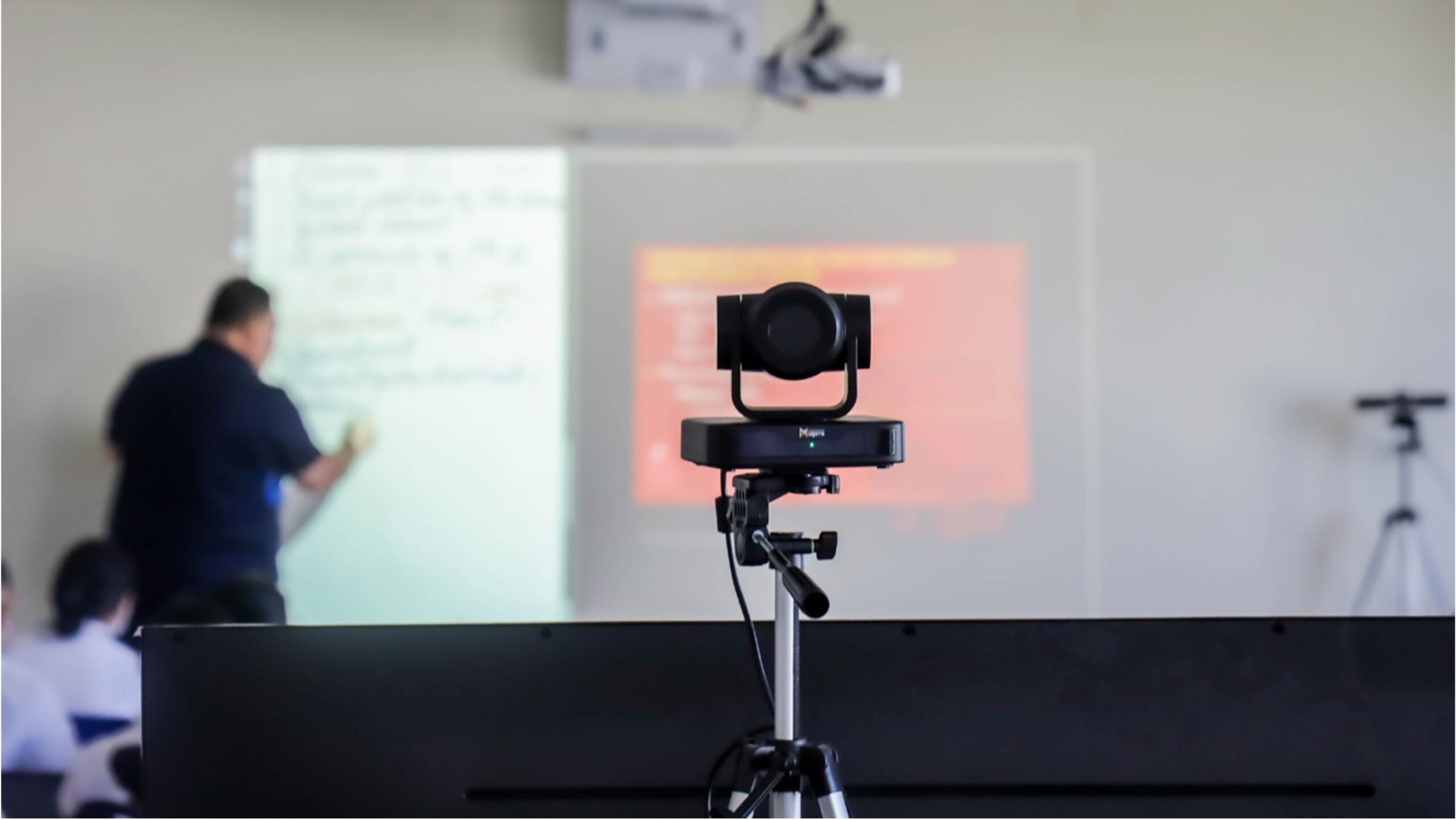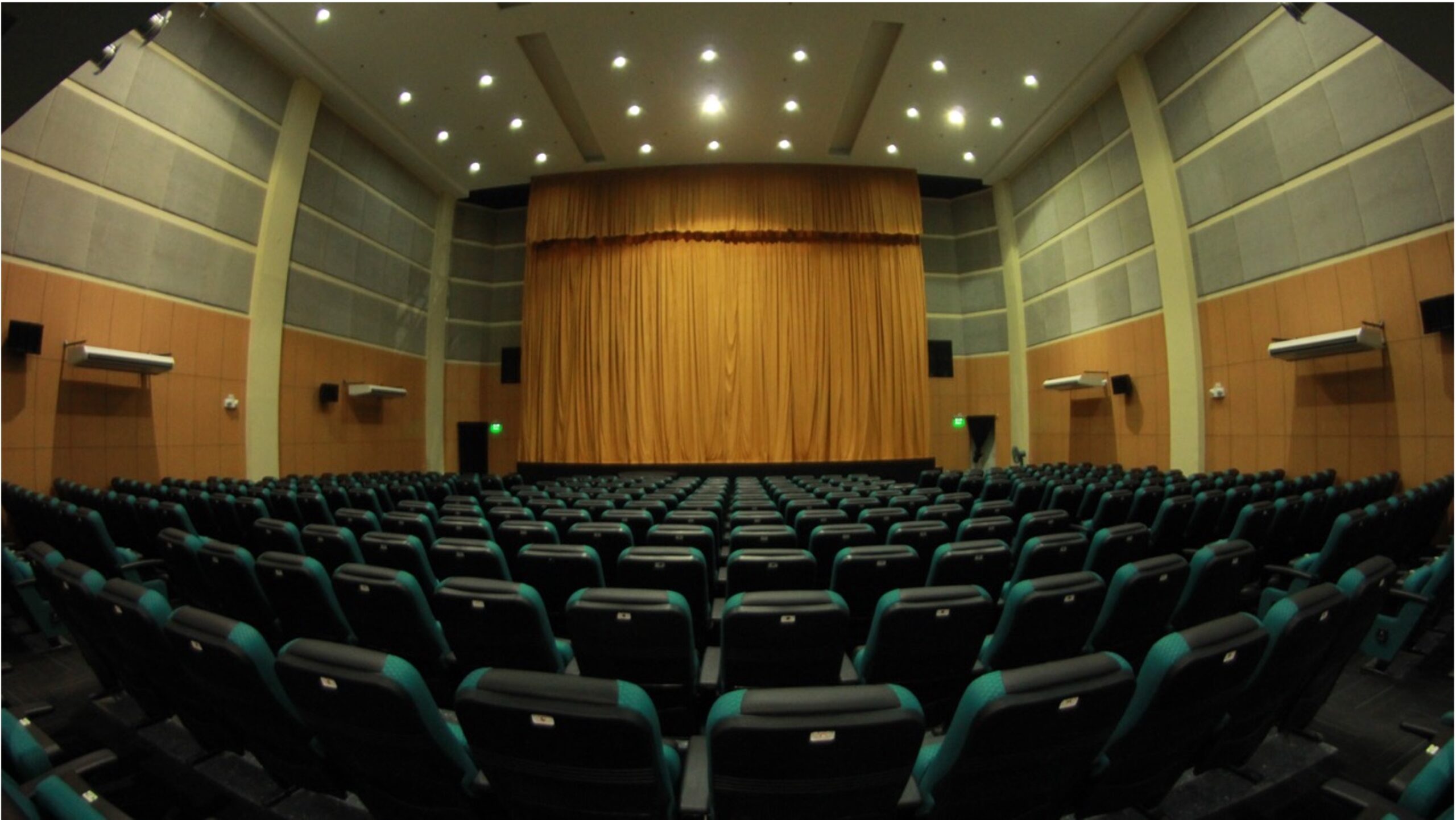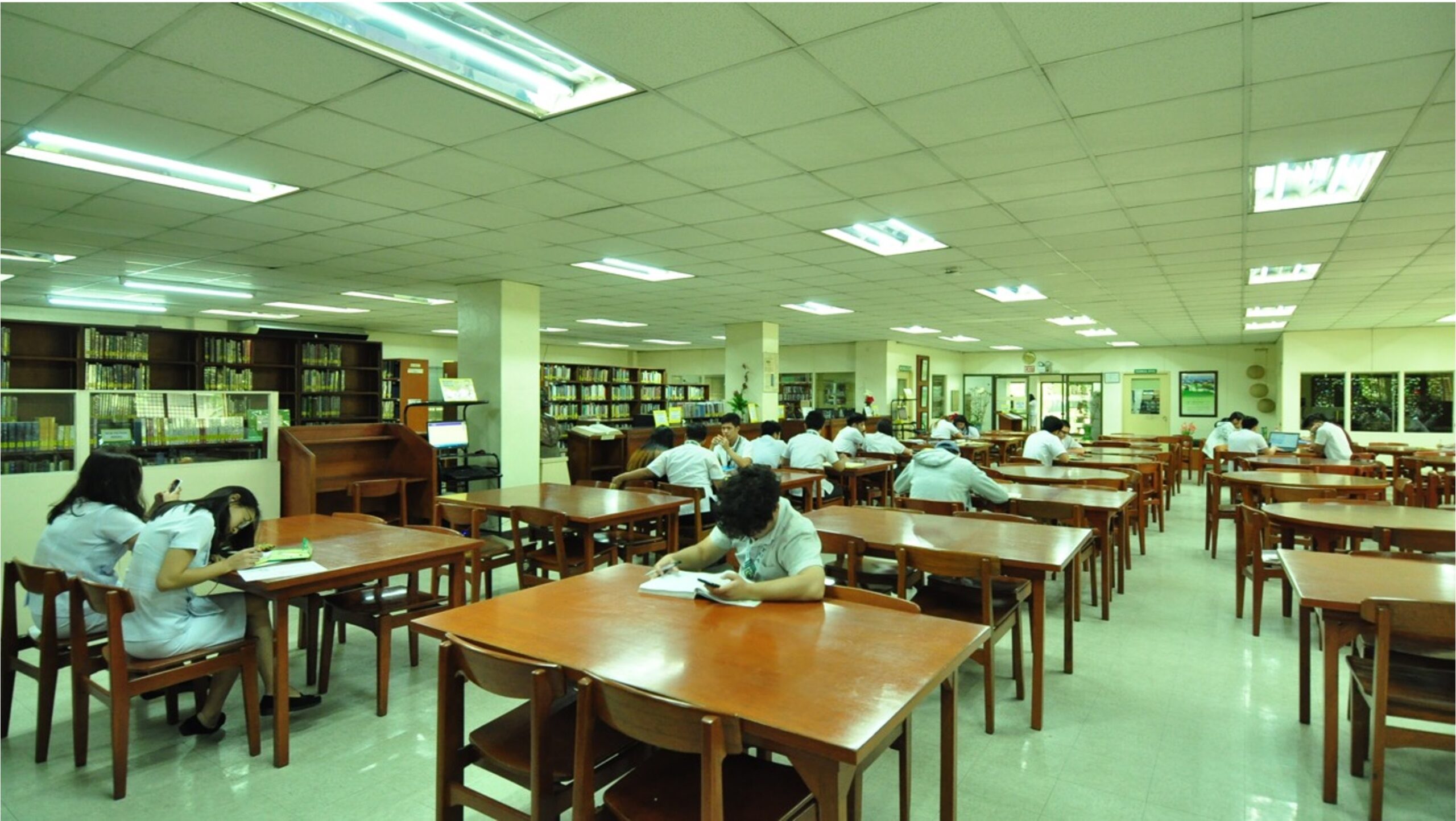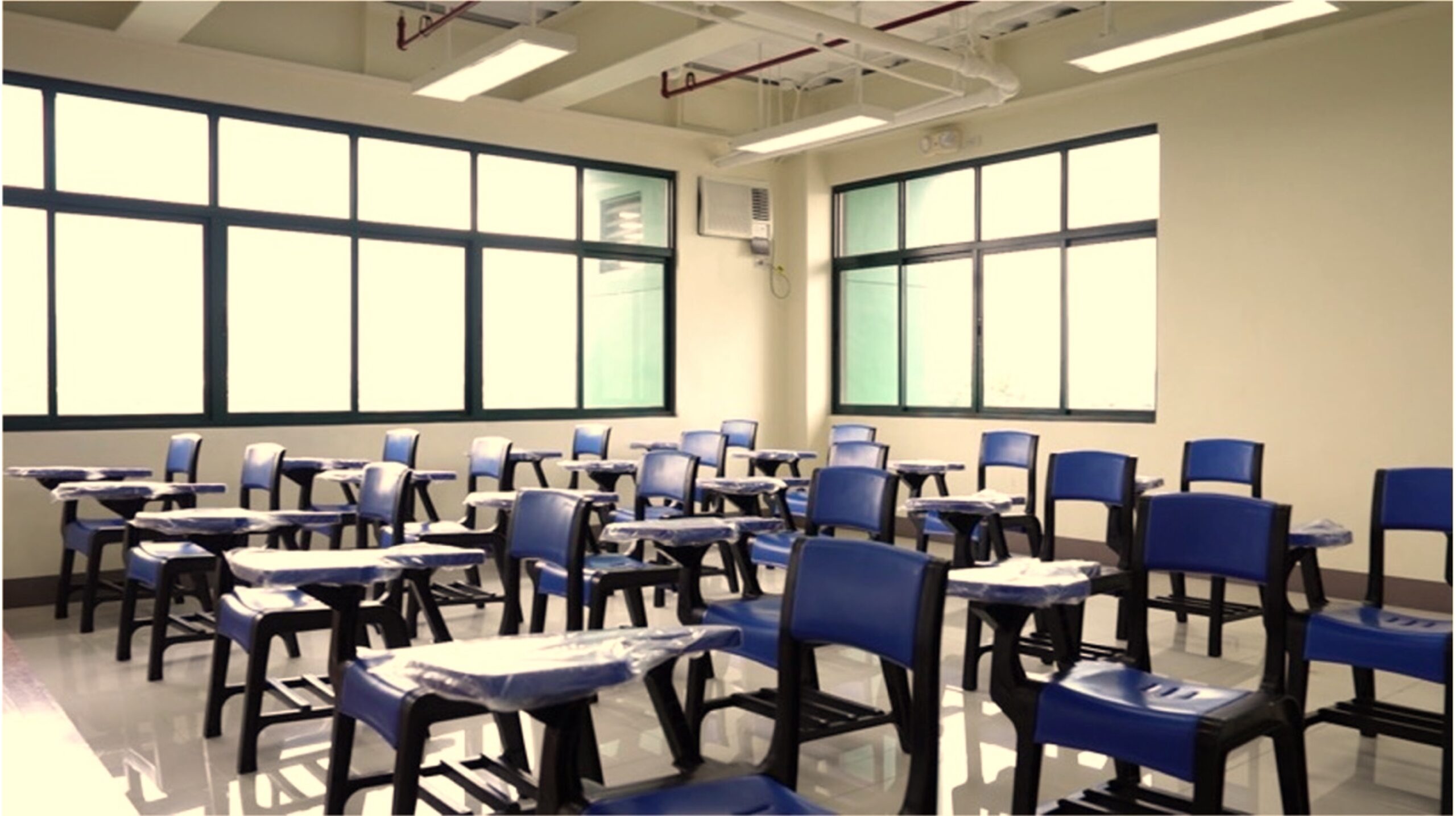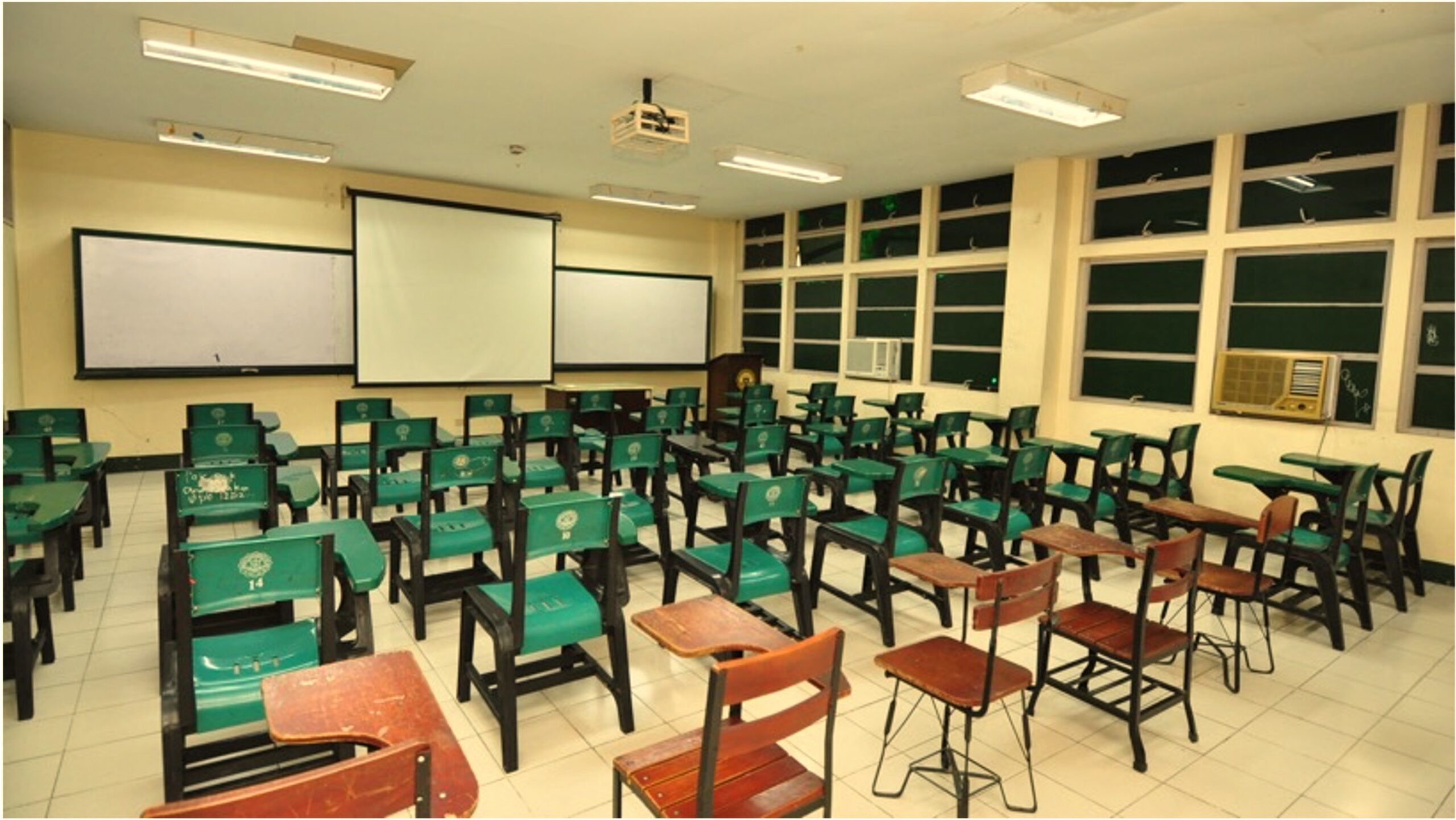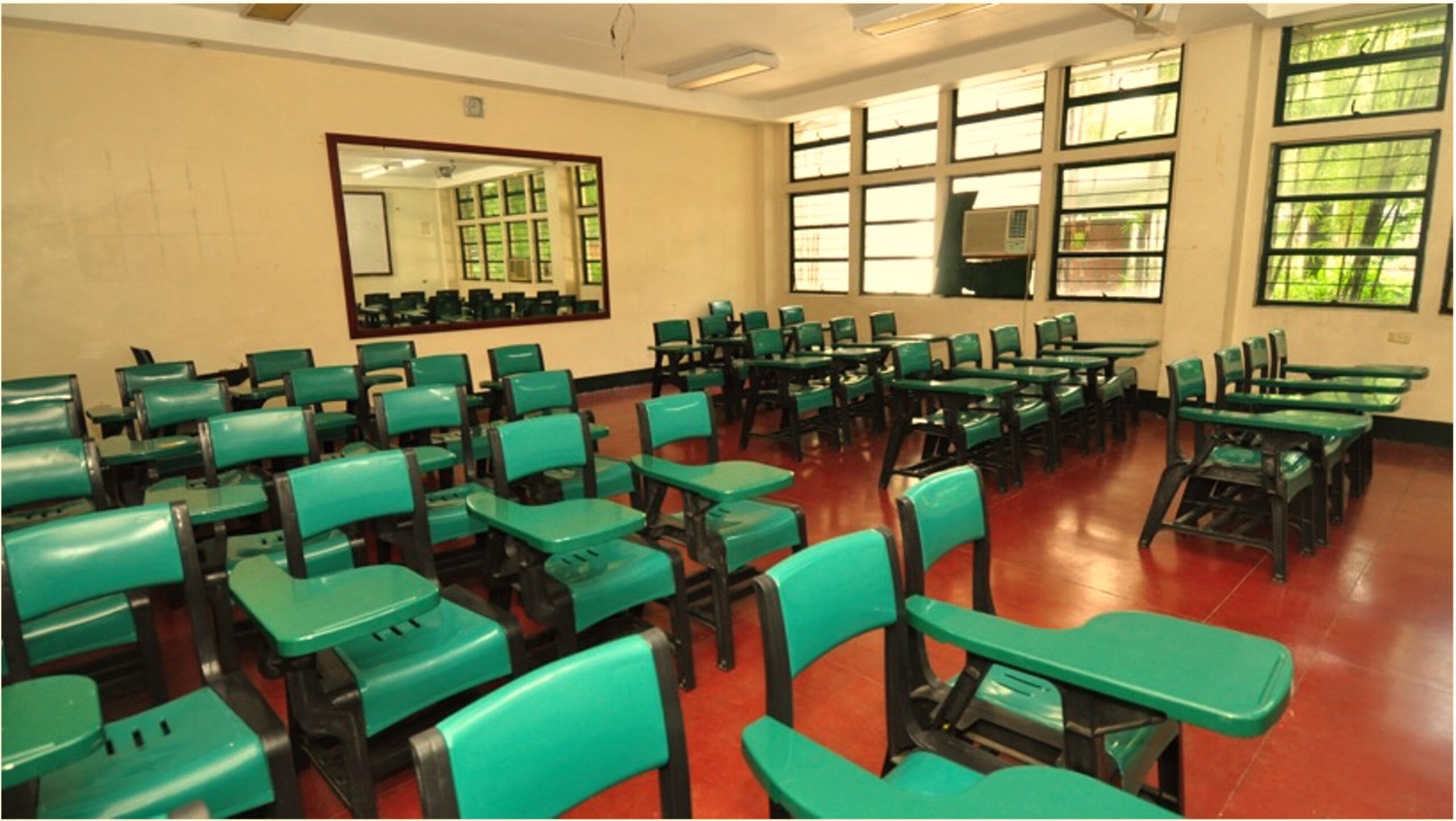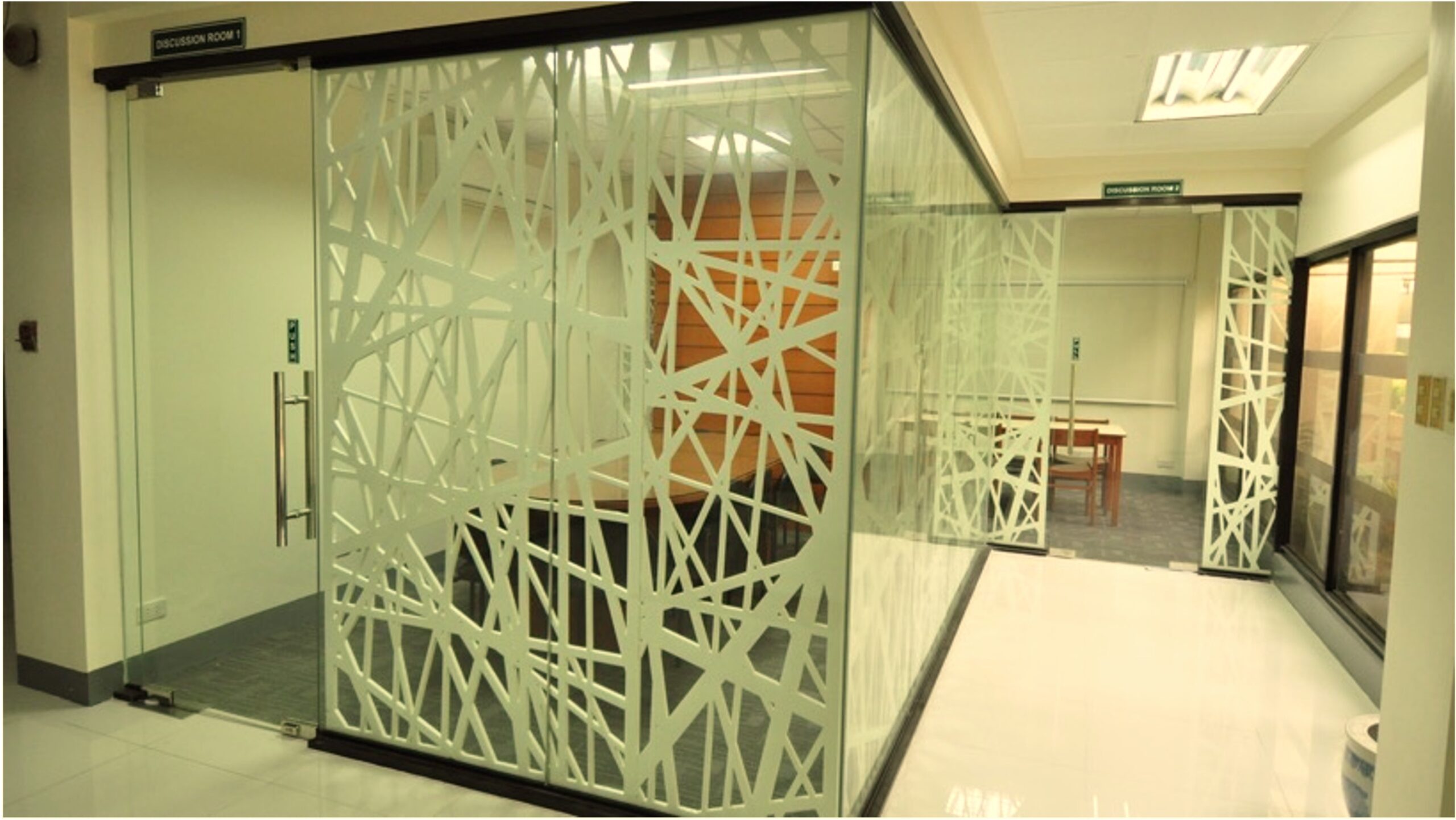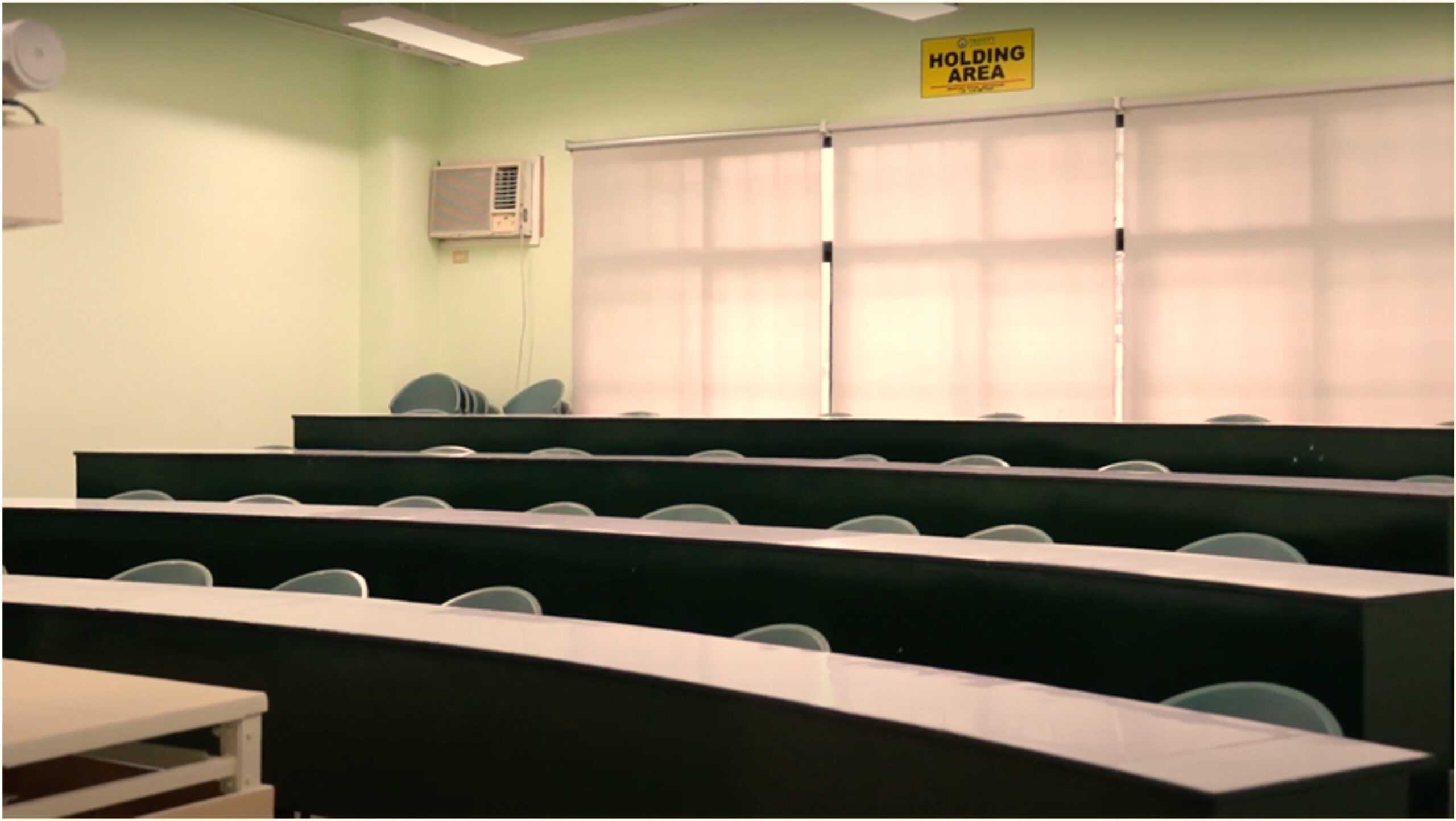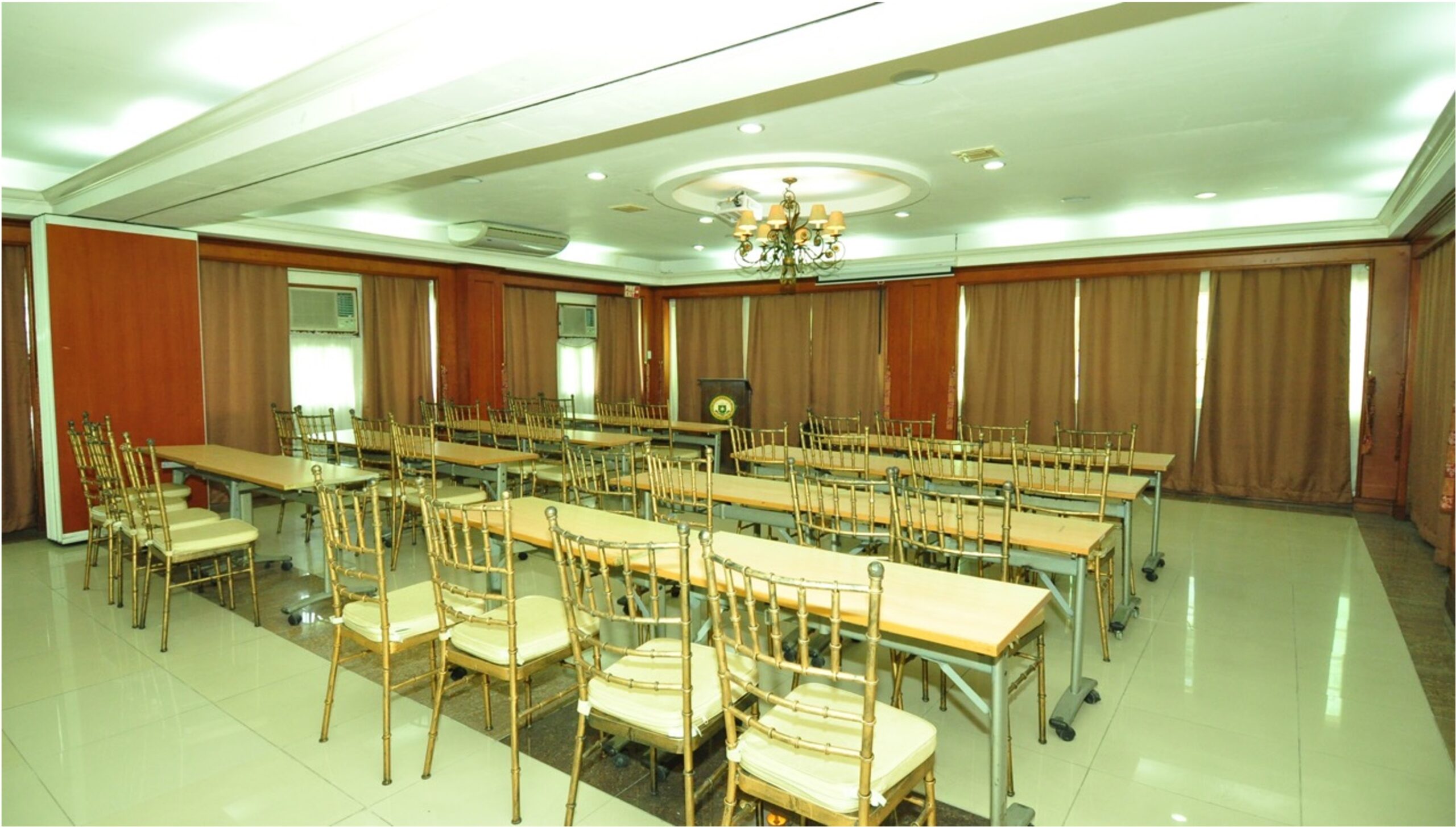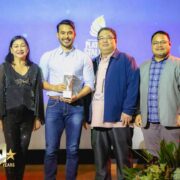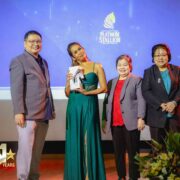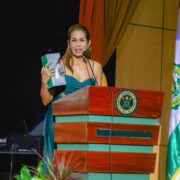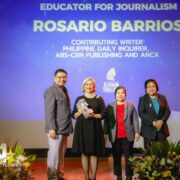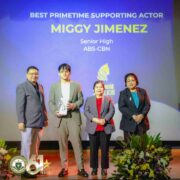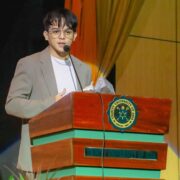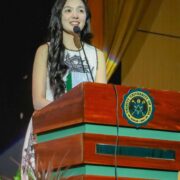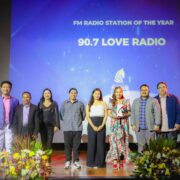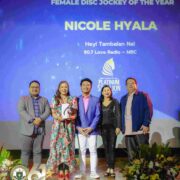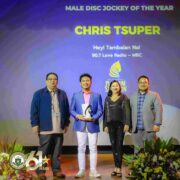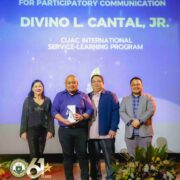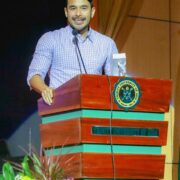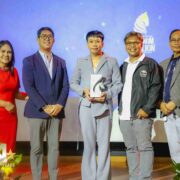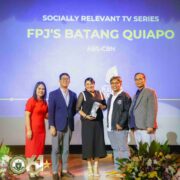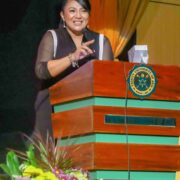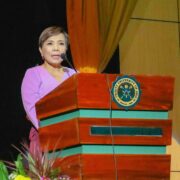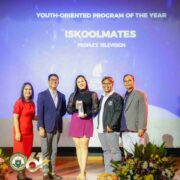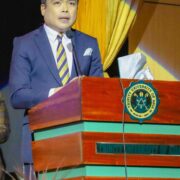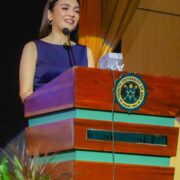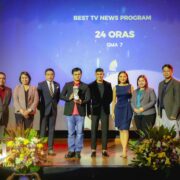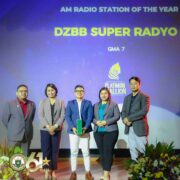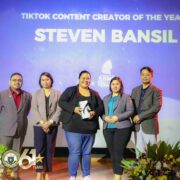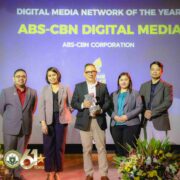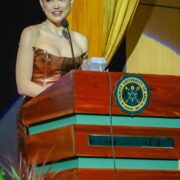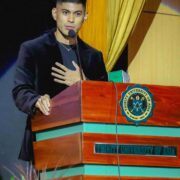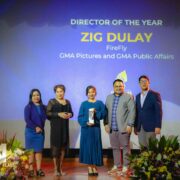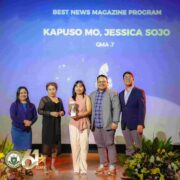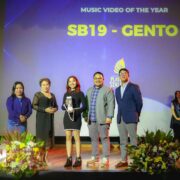Our Bachelor of Arts in Broadcasting program is dedicated to nurturing your understanding of media and equipping you with practical skills for the dynamic world of broadcasting. Discover the exciting journey that awaits you in our BA Broadcasting course below!
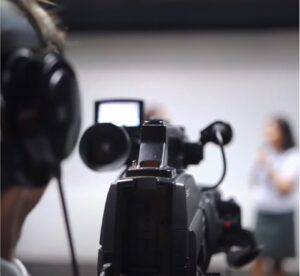
The Bachelor of Arts in Broadcasting is a comprehensive, multidisciplinary four-year program that aims to accomplish academic excellence through an industry-based curriculum that is reflective of competitive, rationalized, and articulated subject offerings. The degree is geared towards the improvement of competent and well-trained media practitioners in the broadcast industry and the emerging media.
The Head of the Program
Dr. Walter H. Yudelmo
 Dr. Walter H. Yudelmo is the Department Head of the Media and Communication Department of Trinity University of Asia from 2017 to present. He was the Chief Communication Officer of Far Eastern Travel Agency, the oldest travel agency in the country, handling five of its company’s conglomerate from 2009 to 2017. He also worked as the General Manager and Managing Partner of West Orange Stakeholder Relations Company, a public relations firm from 2005 to 2009. He is the Executive Director of the Asian Congress for Media and Communication, an international professional organization from October 2006 to present. His research interests include media economics, political advertising, Hallyu studies, health communication and public-private leadership. He completed Bachelor of Science in Development Communication, Master of Science in Development, Master of Public Administration, and Doctor of Public Administration respectively.
Dr. Walter H. Yudelmo is the Department Head of the Media and Communication Department of Trinity University of Asia from 2017 to present. He was the Chief Communication Officer of Far Eastern Travel Agency, the oldest travel agency in the country, handling five of its company’s conglomerate from 2009 to 2017. He also worked as the General Manager and Managing Partner of West Orange Stakeholder Relations Company, a public relations firm from 2005 to 2009. He is the Executive Director of the Asian Congress for Media and Communication, an international professional organization from October 2006 to present. His research interests include media economics, political advertising, Hallyu studies, health communication and public-private leadership. He completed Bachelor of Science in Development Communication, Master of Science in Development, Master of Public Administration, and Doctor of Public Administration respectively.
BA Broadcasting Objectives and Outcomes
Objectives
The main objectives of Bachelor of Arts in Broadcasting are to educate, entertain, and inform the public, either through traditional or new media guided by laws, ethics, and humane media practices. The program is multidisciplinary and aims to accomplish academic excellence through industry-based curriculum for the student to play a significant role in the political, economic, and social development of the country through media use. The program is geared towards the competencies of future media practitioners in taking a major role in exercising basic constitutional rights such as freedom of expression, access to information, and basic human rights.
Outcomes
- Develop and construct quality, principled, and technology-oriented individuals who can contribute to total human development.
- Knowledge of multi-media material design and production that can be used in broadcasting, such as film production, script writing, broadcast management, and educational broadcasting.
- Produce sophisticated deliverables for clients in a variety of areas by inculcating Christian values in corporate/industrial, informational/educational, and commercial/promotional.
- Demonstrate knowledge of shooting and editing video in the field and studio, using professional-level equipment as well as non-linear editing systems.
- Acquire the requisite understanding, attitude, values, and commitment to uphold professional ethics and standards in the practice of the broadcasting industry and the emerging media.
- Understand the local and global standards of broadcasting laws and ethics, research methodology and utilization, and principles of broadcast administration.
- Critically assess broadcast and production practices both holistically and in terms of their components, such as audio, film, scripting, production, and editing.
- Effectively write for broadcast media and client-based production within the Philippines, ASEAN, and Asia, with an emphasis on clarity, story structure, and conciseness.
- Broad foundation of practical as well as applicable knowledge and skills that cultivate a commitment to life-long learning.
- Exemplify Trinitian leadership qualities and managerial skills in the practice of broadcast profession and the emerging media.
- Balance between patriotism, nationalism, and globalism that promote the intellectual broadcasting industry and emerging media competence.
- Continue to uphold morality and spirituality by incorporating value-laden ideas within the mission of the Anglican community through a continued learning process in the chosen profession.
Accreditation
LEVEL III ACCREDITATION
Association of Christian Schools Colleges and Universities
Accrediting Council Incorporated
Awards & Affiliations
National Finalist
FILMARE Film Competition 2024
Best Research Paper
SCOP’s 2023 Research Conference
Finalist, Top 10
ABS-CBN Digi-Tales 2019
Student Facilities
Extracurricular Activities
The Media and Communication Department hosts two significant national events that provide students opportunities for networking and linkages: the National Conference on Filipino Language (running in its 4th year) and the Platinum Stallion National Media Awards (running in its 10th year). Students undergo training to connect with media industries and organizations and to organize these events. Explore highlights from the recent Platinum Stallion National Media Awards 2024 in our photo gallery:
Broadcasting Degree Admission Requirements
REQUIREMENTS
- One (1) 1×1 ID Picture
- Form 138 (Report Card) / ALS Certification (Original)
- Certificate of Good Moral Character (Original and with School Seal)
- PSA / NSO Birth Certificate (Photocopy)
- Special Study Permit / Student Visa (for foreign applicants)
PROCEDURES
FRESHMEN (ONSITE)
STEP 1 Fill out Registration Form at the Office of Admission and Registration (OAR)
To facilitate the application process, the student may encode in advance his/her information via https://mytuaportal.org/lwsis/
STEP 2 Submit Registration Form to the Admission Officer for encoding
Attach the following:
- Form 138 (Report Card) / ALS Certification
- Certificate of Good Moral Character
- Photocopy of PSA / NSO Birth Certificate
The Admission Officer will generate your Student Number and your Assessment Form
STEP 3 Pay Tuition Fee at the Finance Office to be officially enrolled
Reminders:
- Please pay the required down payment to be officially enrolled. Paying less than the required amount will not process the enrollment.
- Scanned copies of admission credentials should be attached as part of the ONLINE. However, original copies must be submitted to the OAR Admission Officer on or before the first day of classes. Failure to comply may nullify the admission.
- Students who are still waiting for their complete original copies due to on-going classes will be asked to execute a promissory letter stating when they can submit the required documents.
FRESHMEN (ONLINE)
STEP 1 Open https://mytuaportal.org/lwsis/
- Click New Students
- Fill out the Admission and Registration form; Click Submit
- Check email for the login link
Log in as follows:
- Account type: Applicants
- Email Address: (enter email address provided)
- Password: tuapassword (this is the default, kindly change once logged-in)
- Term: SY 2022-2023
- Click Generate Student Number
NOTE: Applicants with Student Number may start from here after logging in.
STEP 2 Proceed to Registration Module
- Click the “+” (plus) icon
- Click “Save” to generate registration assessment
- Review your Student Assessment Form (SAF)
STEP 3 Pay Tuition Fee
- Proceed to Payments
- Choose your Payment Mode; Input Amount to Pay;Click Pay Now
- Select your Payment Option; Click Send Instructions via Email/Mobile
- Click Validate Payment
After payment, please wait for at least two (2) to three (3) days for the Finance and Accounting Office’s (FAO) clearing and checking. After which, the student may check his/her portal account to check if he/she is Officially Enrolled.
Graduation Requirements
REQUIREMENTS
The BA Broadcasting program comprises 161 units, including General Education courses (36 units), Professional Education courses (42 units), Major courses (63 units), Elective courses (6 units), and Mandated courses (14 units). Completion of 360-hour practicum program and a thesis project.
Graduation Requirements for College and Graduate School Candidates
- Application for Graduation to be filed at the Office of Admission and Registration (OAR)
- Completed academic, documentary, and financial requirements.
- Documentary requirements:
- Form 137A marked “Copy for Trinity University of Asia” (for students who initially enrolled as freshmen)
- Transcript of Records (TOR) marked “Copy for Trinity University of Asia” (for students who initially joined as transferees)
- Graduation Clearance
- Settled graduation fee
Additional requirements for Board takers
- One (1) 2×2 ID picture with white background
Additional requirements for Graduate School students
- Hard bound and finalized Thesis or Dissertation
- Certified True Copy of the following:
Title Page
Approval Sheet
Abstract
Additional requirements for Foreign students
- Updated Student Visa
Complete BA Broadcasting Subjects & Curriculum
The core subjects of Bachelor of Arts in Broadcasting typically include Interactive Journalism, Producing Pre-Recorded Content, Broadcasting Institution Management. Students also study Programming for Broadcasting and Communication and Media Theory, as well as courses in ethics and communication.
CURRICULUM
Introduction to Communication & Media
Communication, Culture and Society
Introduction to Broadcasting Industry and the Emerging Media (BIEM)
Gender and Society
Pamamahayag sa Pilipino
National Service Training Program 1
Physical Activities Toward Health and Fitness 1
Communication and Media Theory
Media Laws
Media Ethics
Introduction to Broadcast / Interactive Journalism
Writing Non-dramatic Materials for BIEM
Purposive Communication
Art Appreciation
National Service Traning Program 2
Physical Activities Toward Health and Fitness 2
Programming for Broadcasting
Writing Dramatic Materials for BIEM
Public Relations in BIEM
Studies of Audiences/Users of BIEM
Marketing and Promotion in BIEM
Mathematics in the Modern World
Science, Technology & Society
The First and Greatest Commandment and the Trinitian
Physical Activities Toward Health and Fitness 3
Science & Health Communication
Knowledge Management and New Literacies Across the Curriculum
Facilitating Learner Centered Teaching using Social Media and Mobile Technology
Production of BIEM
Production of BIEM Laboratory
Understanding the Self
Ethics
The Second and Greatest Commandment and the Trinitian
Physical Activities Toward Health and Fitness 4
Development Communication and Leadership for the School and Community
Digital Publishing and Robotics Application in Media
Digital Publishing and Robotics Application in Media Laboratory
Advertising Principles and Practices in BIEM
BIEM Research
Readings in Philippine History
The Contemporary World
Data Analytics
Data Analytics Laboratory
Mandarin 1
Introduction to Film
Health Communication Education
Newswriting and Production for BIEM
Newswriting and Production for BIEM Laboratory
Producing Live for BIEM
Analysis of BIEM
Research Design in BIEM
Biostatistics, Epidemiology and Public Health Communication
Biostatistics, Epidemiology and Public Health Communication Laboratory
Mandarin 2
Practicum in BIEM
Producing Pre-Recorded Content
Political Economy of BIEM
Non-linear Post Production for BIEM
Degree Paper in BIEM
Life and Works of Rizal
Producing Public Affairs and Public Interest Programs in BIEM
Producing Public Affairs and Public Interest Programs in BIEM Laboratory
Broadcasting Institution Management
Cross-Cultural Studies and Communication
BA Broadcasting Job Opportunities
Graduates of the Bachelor of Arts in Broadcasting program have a wide range of career options available to them, including:
JOB OPPORTUNITIES
| JOB TITLE | JOB DESCRIPTION | AVERAGE MONTHLY INCOME |
| Broadcast Producer | Broadcast producers oversee the creation and execution of television or radio programs. They coordinate with directors, writers, reporters, and technical staff to ensure smooth production processes. | ₱25,000.00 to ₱50,000.00 |
| Broadcast Journalist | Broadcast journalists research, write, and present news stories for television, radio, or online platforms. They investigate current events, conduct interviews, and report on local, national, or international news. | ₱20,000.00 to ₱40,000.00 |
| Radio DJ | Radio DJs entertain and engage listeners by hosting music programs, interviews, and talk shows on radio stations. They select and play music, interact with listeners through phone calls, social media, and live events, and may also provide news updates and announcements. | ₱15,000.00 to ₱30,000.00 |
| Video Editor | Video editors are responsible for assembling recorded footage into cohesive and visually appealing videos for television programs, documentaries, commercials, or online content. | ₱20,000.00 to ₱40,000.00 |
| Media Researcher | Media researchers gather and analyze data related to audience preferences, market trends, and media consumption habits. They conduct surveys, focus groups, and interviews to collect information, analyze research findings, and generate reports that inform programming decisions, advertising strategies, and audience engagement initiatives. | ₱20,000.00 to ₱35,000.00 |
Data source: JobStreet Career Advice Explore Salaries and Trinity University of Asia Careers Directory in partnership with Prosple



